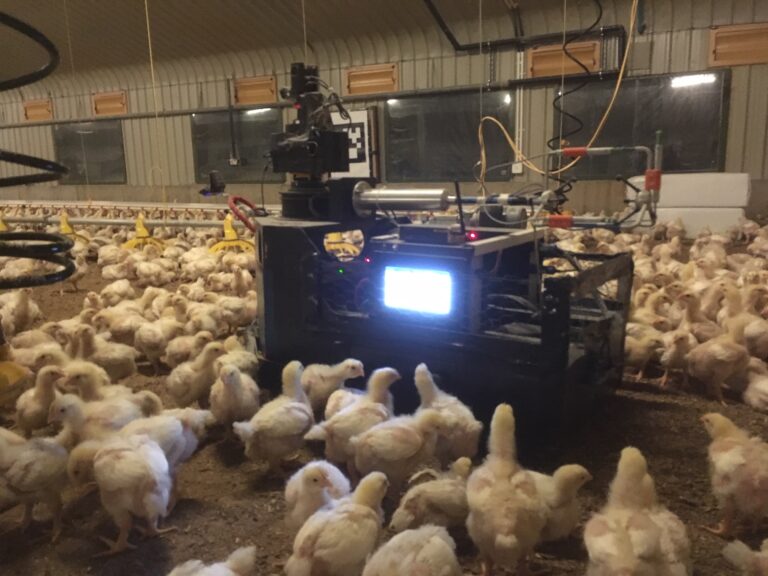A challenge, run by UK Research and Innovation (UKRI) on behalf of the government, will help farmers to reduce pollution and boost food production through the integrated use of new digital technologies, sensors, artificial intelligence, machine learning and robotics. This investment is necessary to meet the challenge of climate change and get the agricultural sector on a trajectory to achieve net zero emissions by 2040.
Under the latest round of the Transforming Food Production Challenge, £20m grant funding is on offer for future food production systems that have the potential to transform current methods of production by improving sustainability and productivity. The competition opened on 16 September.
Innovative ideas that have won funding under similar previous government schemes include a project to produce a prototype for a soft-fruit picking robot, which would reduce the need for seasonal fruit-picking labour and a project called Tuberscan, which will scan potatoes underground ensuring they can be harvested at the right time.
Peter Kendall, Chair, Agriculture and Horticulture Development Board and Chair, UKRI Transforming Food Production advisory group, said: “Equipping UK agriculture for the coming century of climate change is one of the biggest challenges facing the sector and the application of the latest technology, including robotics and AI is a major part of the way forward. We welcome the government’s current support for innovation in the sector and encourage farmers and other entrepreneurs to look into the offer of funding.”
Katrina Hayter, Challenge Director, Transforming Food Production at UKRI, said: “The UK needs to become more efficient and environmentally sustainable in the food it produces. By harnessing the best of British bright ideas, we can improve productivity, open up new markets and help meet the nation’s ambitious net zero emissions target.
“This competition is a great opportunity to showcase fantastic innovations that will help transform agriculture across the UK.”
The Transforming Food Production challenge would particularly welcome large-scale ambitious and integrated projects to demonstrate the art of the possible in terms of future food production systems.
Two other schemes will also open shortly:
One will invite joint projects from the UK and China with a focus on autonomous technologies such as sensors, systems, vehicles and robotics to enhance productivity and sustainability. These projects will aim to reduce emissions from agriculture, contributing to the target of net zero emissions from agriculture by 2040. The competition will open on 7 October.
The second competition is called Science into Technology and Practice which aims to strengthen ties between farmers, researchers and businesses to develop approaches to improve productivity. It will support projects that will transform food production and opens for application from 28 October.
All of this investment in new resource efficient, low emission production systems is part of the government’s commitment to boost R&D spending to 2.4% of GDP by 2027. The fund helps businesses, researchers and industry to transform farming and meet the needs of a growing population.


